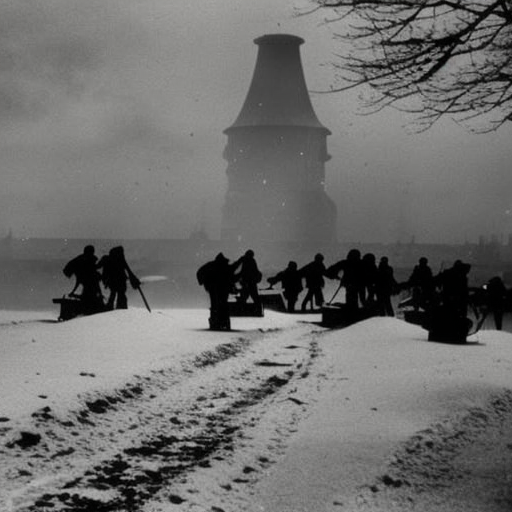Battle of Oosterweel: A Turning Point in the Eighty Years’ War
The Battle of Oosterweel, fought on March 13, 1567, was a significant event in the early stages of the Eighty Years’ War. This battle took place near the village of Oosterweel, located in present-day Belgium, and marked a turning point in the conflict between the Spanish Empire and the Dutch rebels.
Background:
The Eighty Years’ War, also known as the Dutch War of Independence, was a protracted struggle for independence from Spanish rule. The conflict began in 1568 and lasted until 1648. The Dutch rebels, led by William of Orange, sought to break free from the oppressive rule of the Spanish Habsburgs and establish an independent Dutch Republic.
Causes:
The immediate cause of the Battle of Oosterweel was the Spanish attempt to suppress the growing rebellion in the Netherlands. The Spanish Duke of Alba, Fernando Álvarez de Toledo, had been sent by King Philip II to restore order and crush the uprising. Alba’s harsh measures, including the establishment of the Council of Troubles (also known as the “Council of Blood”), had further fueled the Dutch resistance.
The Battle:
The Battle of Oosterweel was part of a larger campaign by the Spanish forces to regain control of the rebellious provinces. The Spanish army, commanded by General Sancho d’Avila, encountered a force of Dutch rebels led by Jan de Marnix, Lord of Toulouse, near the village of Oosterweel.
The battle began with an initial Spanish assault, but the Dutch rebels managed to hold their ground and repel the attack. The Spanish forces, taken by surprise by the resilience of the rebels, were forced to retreat. However, the Dutch victory was short-lived, as the Spanish regrouped and launched a second attack. This time, the Spanish troops overwhelmed the Dutch defenders, who were ill-prepared and lacked proper military training.
The battle ended in a decisive Spanish victory, with the Dutch rebels suffering heavy casualties. Jan de Marnix was captured and later executed. The defeat at Oosterweel dealt a severe blow to the Dutch rebellion and temporarily halted their momentum.
Significance:
The Battle of Oosterweel had significant implications for the course of the Eighty Years’ War. It demonstrated the military superiority of the Spanish forces and highlighted the weaknesses of the Dutch rebels. The defeat at Oosterweel forced the Dutch to reassess their strategy and tactics, leading to a period of reorganization and consolidation.
The battle also had political consequences. The Spanish victory at Oosterweel strengthened the position of the Duke of Alba and his Council of Troubles. The brutal repression that followed further alienated the Dutch population and fueled their determination to fight for independence.
Moreover, the Battle of Oosterweel served as a catalyst for international involvement in the conflict. The defeat of the Dutch rebels prompted neighboring Protestant states, such as England and France, to provide support to the Dutch cause. This external assistance would prove crucial in the later stages of the war.
Legacy:
Despite the initial setback, the Dutch rebellion continued, and the Battle of Oosterweel became a rallying cry for the Dutch resistance. The defeat at Oosterweel galvanized the Dutch population and strengthened their resolve to fight for independence. Over the next decades, the Dutch rebels would regroup, learn from their mistakes, and ultimately achieve their goal of establishing an independent Dutch Republic.
In conclusion, the Battle of Oosterweel was a pivotal event in the early stages of the Eighty Years’ War. It demonstrated the military superiority of the Spanish forces, temporarily halted the Dutch rebellion, and prompted international involvement in the conflict. Despite the initial defeat, the Battle of Oosterweel served as a catalyst for the Dutch resistance, ultimately leading to the establishment of an independent Dutch Republic.












